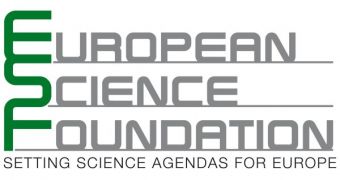The European Science Foundation launched the idea that Europe needs an Institute of Industrial Mathematics to strengthen the link between maths and industry as an enabler of innovation, in a report presented at the “Maths and Industry” Conference, yesterday, in Brussels.
Andreas Schuppert from Bayer Technology Services GmbH, who contributed to the report, said that “it may often be invisible in the final product or to the final consumer, but mathematics is the fundamental ingredient to many innovations that help us respond to a rapidly changing economic landscape.
“Creating a ‘CERN for mathematics’, the European Institute of Mathematics for Innovation, will promote industry and academic collaboration, stimulating innovation, growth and job creation.
“As such, it could help achieve Europe’s 2020 objectives of sustainable growth through a knowledge-based economy.”
The new Institute would include a wide network of world-class mathematicians, which would facilitate their work and collaboration with companies in search of new solutions.
It will be a connection to the best academics and also to a wide range of resources, including databases and libraries, in other words, a very useful centralized resource, that could even help small and medium enterprises (SMEs) have easier access to industrial mathematicians all over Europe.
An Institute of this scale would unite mathematics research in Europe, and it could even reveal brilliant ideas, just like it was the case for Europe’s Center for Nuclear Research (CERN), which gave the world wide web and the Large Hadron Collider to investigate the big bang.
Mario Primicerio from Universita degli Studi di Firenze, Italy, and chairman of the ESF report “Maths and Industry” said that “bringing together mathematicians in one organization will make it easier for companies to access the expertise they need, while at the same time facilitating access to funds by eliminating overlap at national level.”
Besides setting up the Institute, the report also suggests granting EU funds for an industrial and applied mathematics project, as part of the upcoming 8th R&D Framework Program, the future EU-wide funding initiative for science.
In also recommends the implementation of an industrial policy that includes an EU-wide ‘Small Business Act in Mathematics’ that would fund spin-off companies based on mathematics, just like it is the case in Germany and Sweden already.
This report is the result of a partnership with the European Mathematical Society and close collaboration by academia, industry and policy makers, and it is available online.

 14 DAY TRIAL //
14 DAY TRIAL //